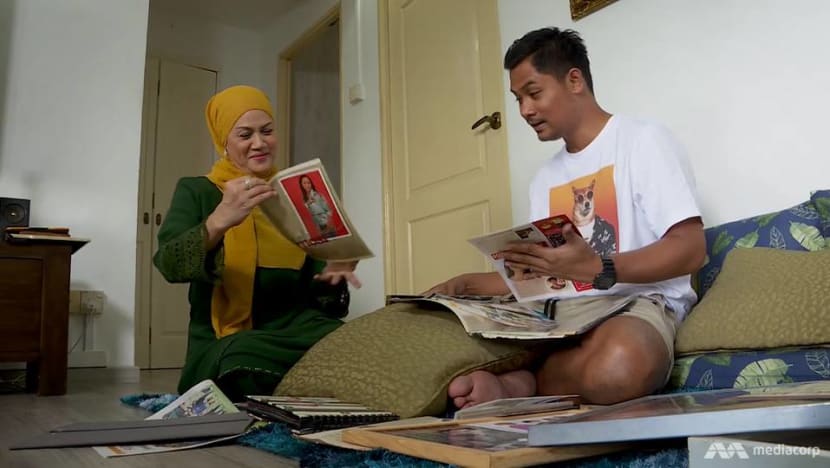The footballer turned singer who lost both careers, and found his way again
Motivated by fame, promising football player Syed Azmir chose to be a singer only to have it fall apart. Could he pick himself up and return to the sport? On The Red Dot finds out.
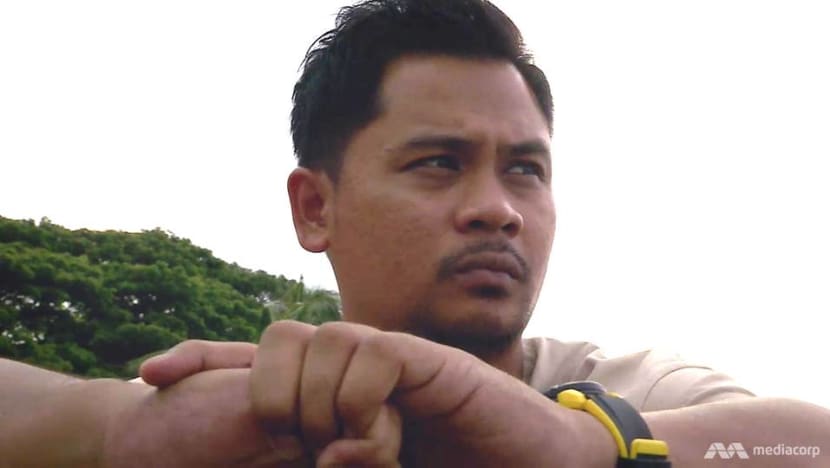
Pro footballer, full-time singer — two careers that have given Syed Azmir regrets and lessons from failure.
SINGAPORE: Syed Azmir Syed Azman remembers vividly how it feels to be famous.
Having auditioned for television singing competition Anugerah, the then 21-year-old impressed the judges with his vocals and was given a “golden ticket” to the next round.
“When I was onstage (during a roadshow), the moment I announced my name, people were screaming. They were carrying boards with my name on them. They were trying to reach out for my hands … and give me gifts,” he recalled.
“I told myself I can actually do this as a living.”
The crooner, who emerged runner-up in the contest, broke into the Malay entertainment scene in Singapore and Malaysia, releasing an album and even performing gigs in London.
He relished his popularity, but sometimes wondered if he had done the right thing.

“In 2010, when I was reflecting on things that I’d done for the last five years, I regretted not continuing football, and I regretted going into singing,” said Azmir, now 35.
Not one but two careers came to an abrupt end for him. He had to dig deep and rise again, as the programme On The Red Dot discovers in a series about individuals who found the courage to start anew after their failures. (Watch this episode here.)
PROUD TO REPRESENT SINGAPORE
When he was young, Azmir was obsessed with football, always insisting that his father take him to a nearby field for a kickabout.
At primary school, his teachers wrote in his report card that he was good at both music and sports, the fields he went into later in life.
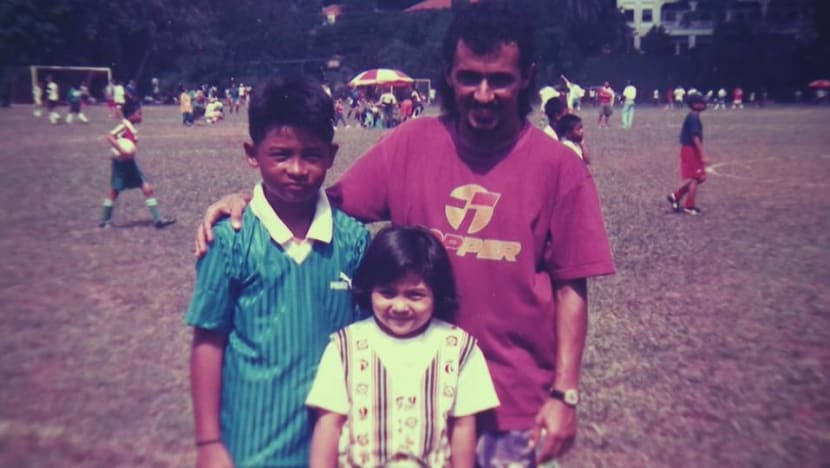
“I remember always nagging the teacher in charge of football. I kept asking him, ‘Coach, when can I be in the school team?’” recounted Azmir.
“He said, ‘You’re still young. You need to be at least 10 years old to be in the school team. And I said, ‘Okay, I’ll wait.’”
Meanwhile, he took to gatecrashing his father’s weekly football games, honing his skills with the adults patient enough to entertain him.
The boy was soon selected to play for his school, when he was 11, and became the team captain. He was later talent-spotted to represent the national youth teams until he was 18.
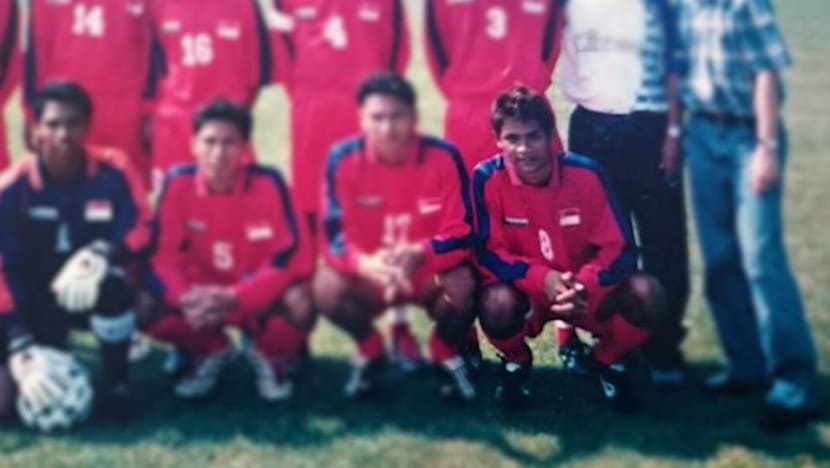
One of his coaches, he remembered, was former Singapore international footballer R Suriamurthi, who switched his position from striker to right midfielder after being impressed with his crosses, free kicks and runs on the flanks.
“As a kid growing up during the Malaysia Cup days, I always wanted to play for the national team. So every single time I played and there was a Singapore flag on my chest, I felt very proud,” said Azmir.
He turned professional and joined Sembawang Rangers FC full-time when he was 19, quitting his Institute of Technical Education studies to concentrate on the sport.
“I could see … my dad was very proud that his son was finally going to turn pro,” he added.
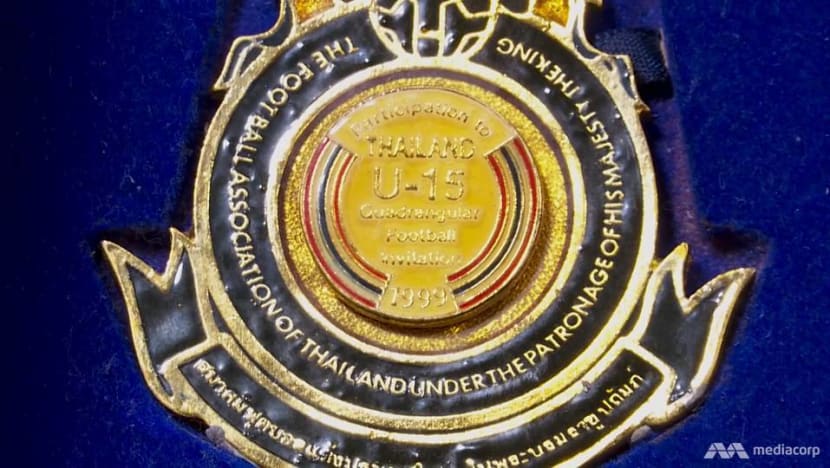
Former Geylang International FC defender Duncan Elias described him as a player on the rise who was “going to achieve great things in football”.
“He could do everything that was expected of a right winger — he had the speed, the stamina and … good passing ability,” praised his one-time teammate.
Azmir’s professional playing career was derailed, however, when his club was dissolved. He was serving his National Service then, and the plan had been for him to continue playing for the club after NS.
But during NS, he could only play for either the Singapore Armed Forces FC or the SAF Sports Association (Safsa).
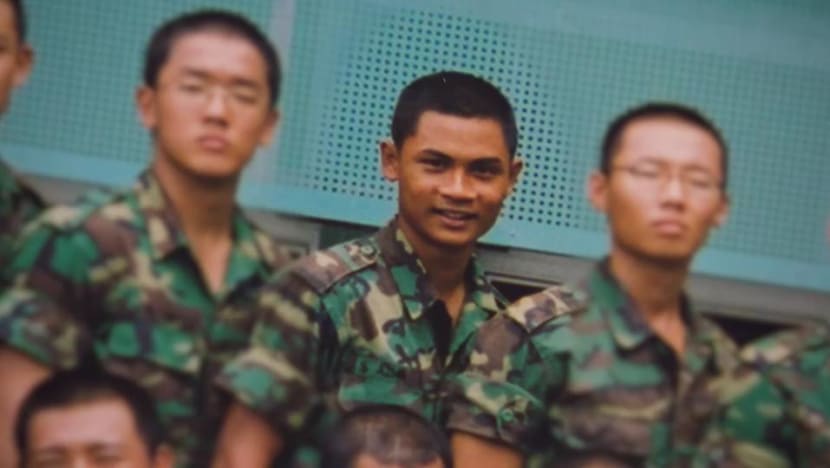
Since the former did not offer him a playing contract nor invite him for trials, he ended up playing for Safsa on a part-time contract instead.
“I was sad and confused,” he admitted.
GETTING DISTRACTED
It was at this point that music started to play a big part in his life.
A fan of American singer Usher, Azmir entered an Usher singing contest after his friends’ prompting, and won. The prize was a trip to Los Angeles to watch the R & B artist’s concert in 2003.
“That was my first singing competition. I was quite shocked that I could do it,” he said. “It was a wonderful experience … to watch my idol on stage, not even in Singapore but in LA, for free!”

Two years later, his mother, who wanted him to sing professionally, nudged him to join Anugerah. He had doubts, but managed to win over the crowd and the judges.
His father, who had dreams of him playing professional football instead, was not pleased, but Azmir thought he had found his second calling.
He was still playing for Safsa then, and recalled how fans turned up to support him during one particular match.
“Every single time I touched the ball, they were screaming. I couldn’t focus, I couldn’t play my game. My coach took me off during half-time,” he recounted.
“He said to me, ‘You really have to find a way to do this, if you still want to play football.’”

Azmir gave up the sport.
“With the popularity that I’d gained — and the supporters — I told myself that there was no turning back. I can’t just leave all these people and go back to football,” he thought.
He then signed with Mediacorp’s Suria and became part of a boy band called Anugerah Boys. They performed at roadshows, events and even held a concert.
At times, however, he yearned for a simpler life, away from the public attention, adulation and the stress fame brings.
“We had trouble going out to eat, even with my family. People would stop us because they wanted to take photographs with me,” he said.
“In the beginning, I kind of liked it. But after some time, it got very tiring, and you’d just want some alone time. That was when I started missing the Azmir before Anugerah. I could do whatever I wanted.”
WATCH: From footballer, to singer, to zero - and back again (5:16)
TO MALAYSIA AND BACK
And yet, he wanted more: A solo singing career, his own album and expanding into Malaysia.
He was approached by veteran artist manager Amin Hussen, who offered him a full album contract on condition that he move to Kuala Lumpur.
Azmir agreed and, in KL, released his own album. He was soon receiving a steady income from his gigs and songs. “It was just like when I was 19, getting my first professional contract to play football,” he said.
It was a proud moment, everything that I'd worked for, to have my own album, my own songs. I didn’t have to sing other people’s songs any more … It was a great achievement for me.
But in his second year in Malaysia, his manager Amin was diagnosed with cancer, had to take time off for treatment and played a lesser role in Azmir’s management.
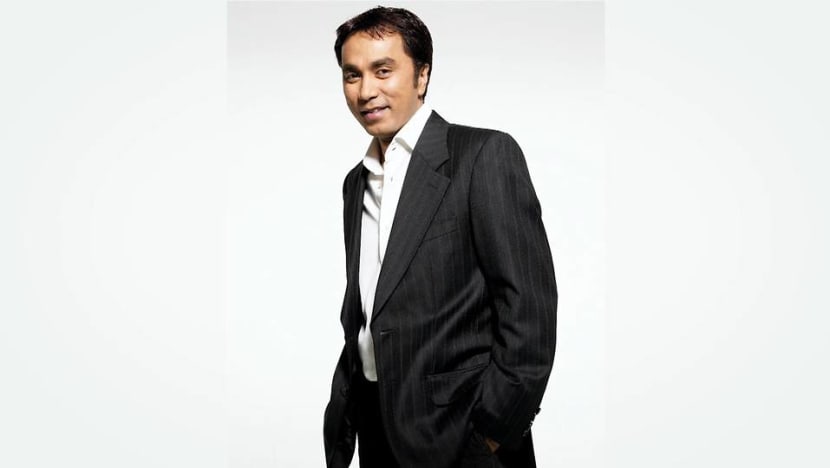
Azmir’s sister Sharifah Aziera recalled: “He was devastated. Azmir felt really lost. He didn’t know which path he was supposed to go to and what to do next.”
He returned home, and soon after, his mentor died of his illness.
“I was deeply sad,” he said. "After he passed away, and I was no longer with the management company, I decided to find a stable job, which meant giving up singing, giving up the entertainment business."
BOUNCING BACK
At times, he wondered if it was the wrong decision to give up his football career.
“They (his former teammates) all succeeded as professional players ... I questioned myself: What if I hadn’t stopped playing football? Would I still be there? I think the answer is yes,” he said.

But returning to professional football would have been near impossible, given his fitness level and his time away from the game. “After leaving football for singing, and leaving singing after five years, I was hitting rock bottom,” he said.
The only way was up. I had to find the way up again.
He signed up for a coaching course with the Football Association of Singapore and was selected for a sponsored programme for elite coaches.
In the beginning, he struggled as a coach — players did not take him seriously and saw him only as an entertainer.
“I realised that I had to give it all (singing) up and focus on being a full-time coach, because I wanted them to trust me and … to know that I mean business when I’m on the field,” he said.
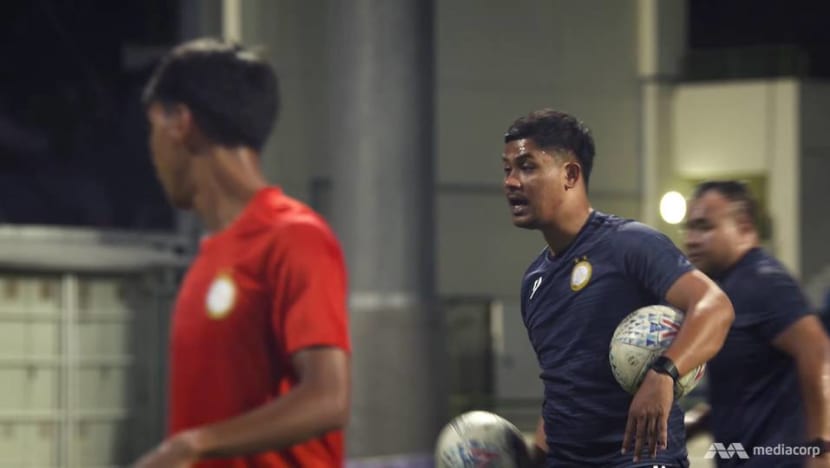
He is now in his eighth year of coaching, with the national youth team and with Geylang International FC as head of youth development.
But he has not cut off ties with the entertainment industry entirely. He was invited to perform in a charity show last year, and even got a role in the Mediacorp Channel 5 drama Kin.
He also released a single in March, and recorded a song for National Day with his previous band.
He admitted that his two career switches had not been easy. “I didn't achieve what I wanted to achieve as a footballer. I didn't achieve what I wanted to achieve as a singer,” he said.

Each time, his family was his pillar of strength and support. “In every struggle that I go through, I know I can depend on them to be there for me,” he said.
“And what I’ve learnt from my failures is never to give up. Every mistake is a learning opportunity, and I've learned from all my mistakes. That has brought me to where I am today.”
Watch the episode here. On The Red Dot airs on Mediacorp Channel 5 every Friday at 9.30pm.
